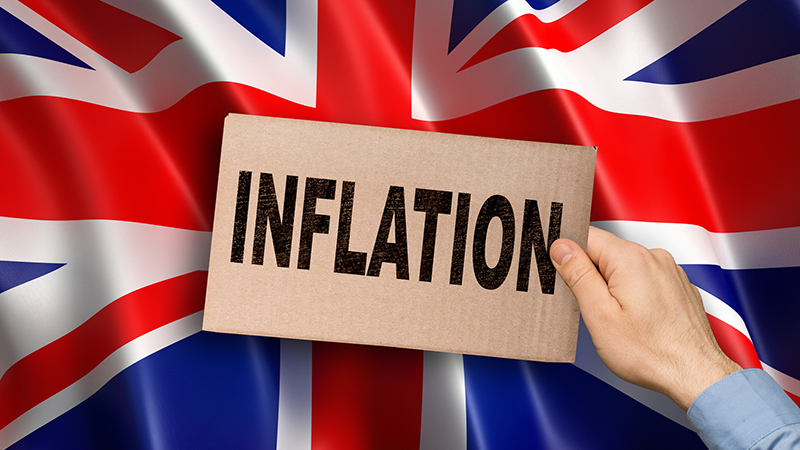Food shortages contributed to UK Consumer Price Index (CPI) inflation increasing to 10.4% in the 12 months to February, marking the first month-on-month rise to the headline number since October’s 11.1% high.
Forecasters had expected inflation to drop to 9.9%.
According to the Office for National Statistics, the largest upward contributions to the increase on January’s 10.1% figure came from surging food prices and clothing, partly offset by downward contributions from recreational and cultural goods and services and motor fuels.
Food and non-alcoholic beverage prices rose a mammoth 18.2% in the year to February, up from 16.8% in January, the largest increase to food prices since the 21.9% witnessed in the 12 months to August 1977.
Core inflation, which strips out food, alcohol, tobacco and energy, rose by 1.2% month-on-month to 6.2%, ahead of the forecasted 5.7%.
All eyes on the Monetary Policy Committee
Industry commentators expect these latest figures to exacerbate the headache facing the Bank of England’s Monetary Policy Committee, which meets on Thursday (23 March) to decide its next move on interest rates.
Markets are currently pricing in a 25bps hike, however Derrick Dunne, CEO of You Asset Management, said the bank could go further than anticipated following the inflationary increase.
He said: “The big question on everyone’s lips now will be whether or not the BoE’s Monetary Policy Committee will see this as confirmation that it needs to press on with further rate hikes. There is no doubt that the case for pausing its rate cases has become significantly weaker off the back of this news.
“When inflation looked to be cooling, general consensus had been that at most we would see a 25bps increase – with any hike being the last for the foreseeable future. However, now all bets are off.”
Interactive Investor head of investment Victoria Scholar also said the latest CPI print could embolden the BoE to continue hiking rates despite the risks posed by recent turmoil in the banking sector.
Emma Mogford, Premier Miton Monthly Income fund manager, added: “These additional inflationary pressures are clearly a problem for the BoE. Increasing interest rates to fight inflation could push the UK economy into a recession later this year. Companies will continue to feel a squeeze on profits from rising costs as well as higher interest payments.”
See also: Investors brace for the rarity of highly unpredictable Fed and Bank of England meetings







